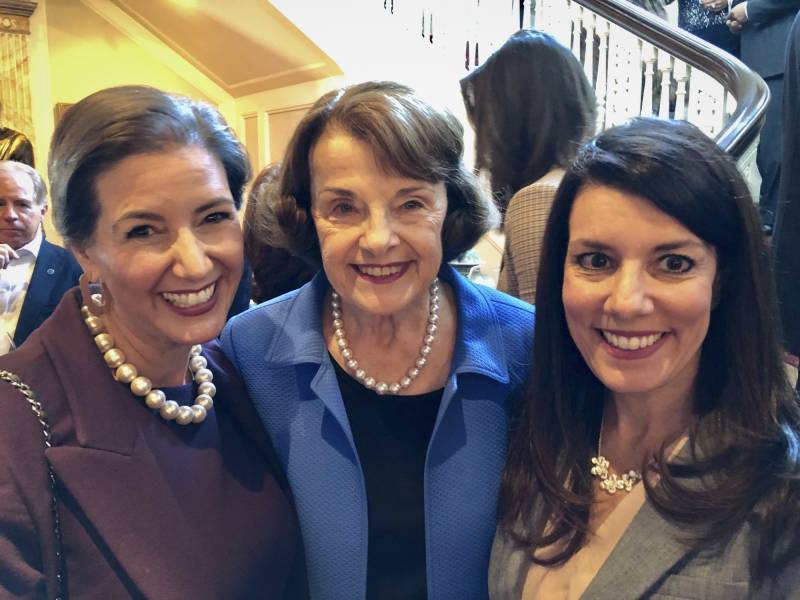Twenty five years before she was sworn in as the mayor of Oakland, Libby Schaaf drove with a friend to Los Angeles for the state Democratic Party convention.
It was April 1990 and Schaaf, who was about to enroll in law school, was on her way to the first convention where eligible delegates could endorse candidates.
“I was so excited to go to that Democratic convention and cast my ballot to endorse Dianne Feinstein for governor,” Schaaf told me. “I wanted us to see the first woman governor of California, something I still haven’t seen.”
For Schaaf, an Oakland native, some of her earliest memories seeing a powerful, female leader were of Feinstein.
“When I became the mayor, she immediately reached out to me,” recalled Schaaf, who served two terms. “She was incredibly generous with access and she was always generous with advice.”
Sen. Feinstein, who served in the upper chamber of Congress for 30 years, died Thursday. She was 90.
Feinstein is a legend in California politics, and her death elicited an outpouring of comments and commentary that revealed how deeply respected she was. Women in both state and local politics, including Schaaf, joined the chorus to thank Feinstein for mentoring them. Feinstein paved the road for so many women leaders. That part of her legacy is unimpeachable.
Elected to the San Francisco Board of Supervisors in 1969, Feinstein became the board’s first female president in 1970, and after the assassination of Mayor George Moscone and Supervisor Harvey Milk, she became acting mayor. The next year, she became the first woman elected mayor. It was the beginning of a career of historic firsts.
She was the first woman elected to represent California in the U.S. Senate.
She was the first woman to serve as chair of the Senate Judiciary Committee.
She was the first woman to serve as chair of the Senate’s Intelligence Committee.
As she ascended to the highest peaks of the federal government, she reserved time to dole out advice to women leaders, especially those elected to leadership positions for the first time.
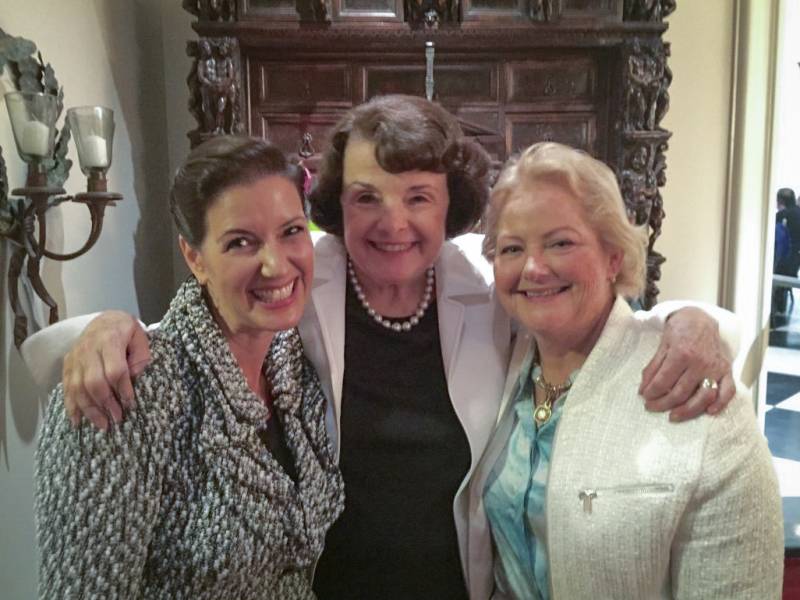
At a Friday press conference, Mayor London Breed, the second woman to serve as San Francisco mayor, who became acting mayor following the death of Mayor Ed Lee in 2017, said one of the first calls she received was from Feinstein.
“We had a very long discussion about just what she went through, how she made decisions, how difficult it was,” Breed said. “And she provided that support and that mentorship to make sure that I was prepared to step up at a difficult time for our city.”
In 1990, Feinstein was locked in a tight battle for the Democratic nomination with John Van de Kamp, then the state attorney general. He opposed capital punishment, but Feinstein, a moderate Democrat, stunned the liberal delegates with her position.
“Yes, I support the death penalty,” she said drawing boos, according to the Los Angeles Times.
Still, Feinstein easily won the nomination. She lost the election to Republican candidate Sen. Pete Wilson, but she won the 1992 special election to complete Wilson’s term. In 2018, she reversed her support of capital punishment.
Feinstein frequently hosted luncheons so women leaders in the Bay Area and the state could have a space to connect. Schaaf received her first invitation in 2015.
“I tried to emulate what I considered the Feinstein Formula for crisis response — project calm competence and have your five-point plan ready for how you’ll prevent it from ever happening again,” said Schaaf, who dealt with the Oakland Police Department’s sexual misconduct in 2016 when the city went through three police chiefs in nine days.
“I am here to run a Police Department, not a frat house,” Schaaf said at a press conference, displaying a Feinstein-like go-your-own-way feistiness.
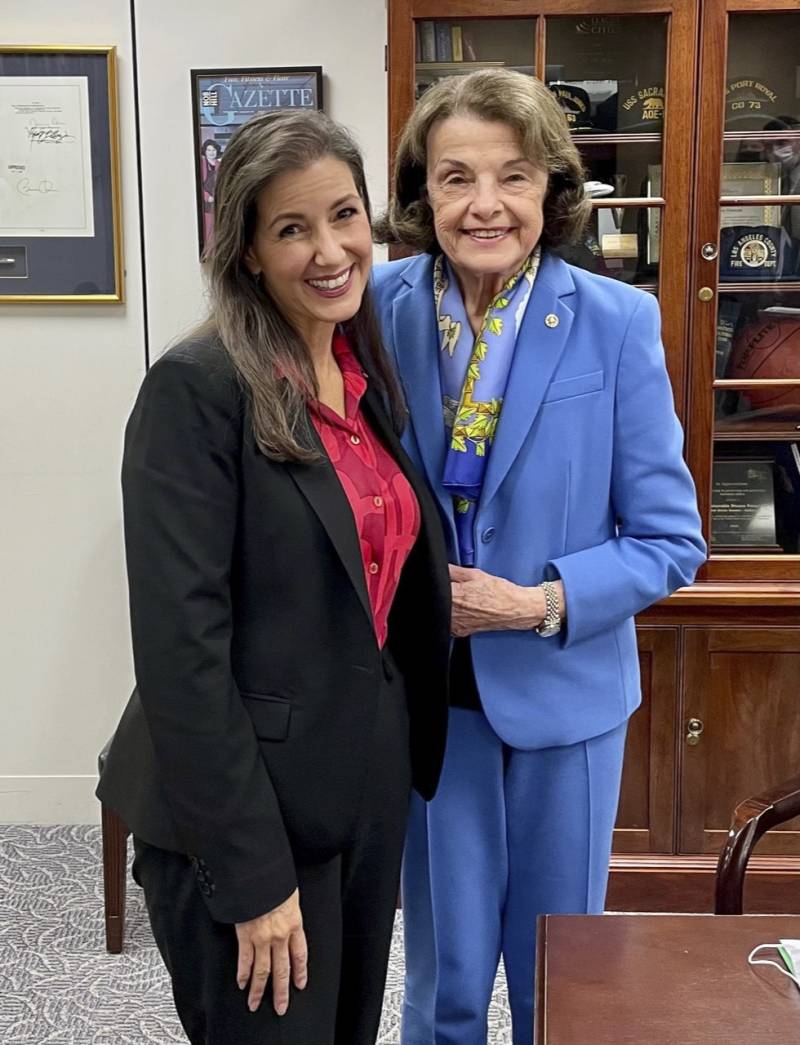
In 2018, Schaaf, who is participating in a one-year fellowship at Harvard University while teaching at the UC Berkeley Goldman School of Public Policy, tipped off the public to a federal immigration sweep. At the time, I wrote in the San Francisco Chronicle, “We’re at an immigration code red, and Schaaf was right to sound the alarm.”
Schaaf recalled Feinstein inviting her and Nancy O’Malley, the first woman elected as district attorney in Alameda County, to travel with her to a meeting about teenage sex trafficking in Los Angeles. Schaaf barely made it on time, putting Feinstein in a bad mood.
“Her staff warned me: You don’t show up on time for the Senator, you come early,” Schaaf said.
“She is one feisty, tough cookie with a razor sharp mind for policy details,” Schaaf continued. “Meeting with her, you had to come prepared. She’d be hugging you and the next second she’d be drilling you like the worst law school professor giving you a pop quiz on whatever the policy issue was of the moment.”
San Francisco Supervisor Catherine Stefani was a student at Saint Mary’s College of California in Moraga in 1990 when she volunteered for Feinstein’s gubernatorial campaign.
“I’ve just always looked up to her as this strong woman who’s paved the way for women in politics, and has been unapologetically passionate about gun violence prevention and things that a lot of people were too scared to take on,” she told me.
In March 2018, Stefani was at March for Our Lives, a rally held in San Francisco and other cities for gun control legislation in the wake of the mass shooting at Marjory Stoneman Douglas High School in Parkland, Fla., where 17 people were killed. Stefani approached Feinstein, thanking her for the 1994 federal assault weapons ban. Feinstein told Stefani she was going to endorse her campaign for supervisor.
“It was just so validating, and a special moment for me,” said Stefani, who was elected in 2018. “Since that moment, she’s mentored me in my career here in San Francisco and has always been someone that I can go to.
“I feel so blessed and so grateful that someone who I admired for so long since college — that somehow my path led me to actually be in her presence. I just can’t begin to tell you how grateful I am for that.”
Stefani, a staunch gun control advocate, said Feinstein showed her and others that women have a place in politics — and to never give up on issues that seem almost impossible to solve, like gun violence in America.
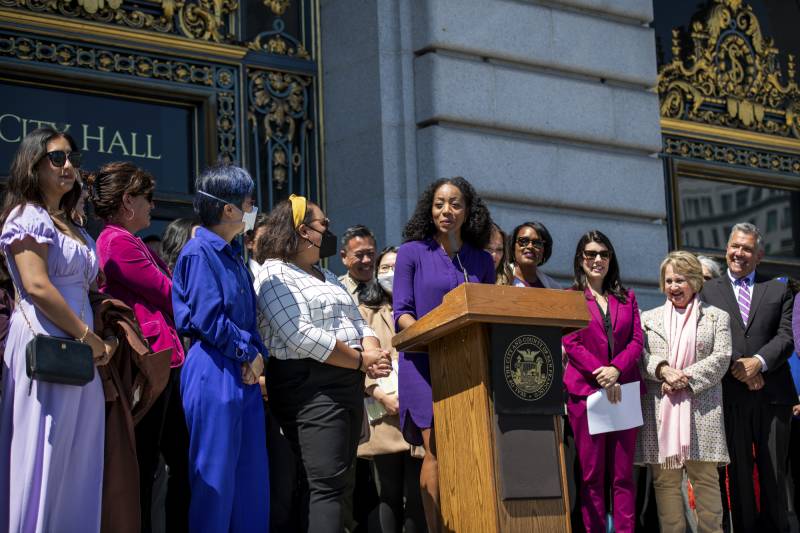
“I will forever work on this issue for all the reasons I have been, but to continue her legacy and her determination to not let the gun lobby own this issue,” she said. “And to not let the gun lobby continue to destroy the lives of so many people in our country.”
Malia Cohen, the California State Controller who served two terms on the San Francisco Board of Supervisors, was on an almost six-hour flight from Toronto to San Francisco when news of Feinstein’s death began circulating Friday.
“I can’t believe that she’s gone,” she wrote in response to my text. “I just landed [and] my phone is flooded with text messages.”
In KQED’s Feinstein obituary written by my colleague Scott Shafer, he noted that Cohen recalled meeting Feinstein on an elementary school field trip to City Hall. It was the mid-1980s, and Feinstein told Cohen’s class one of them could be mayor one day.
“There are always pivotal moments in your life, particularly as a child, that really do shape you and that moment shaped me,” Cohen told me in a phone interview. “There are very few women that you can look at from San Francisco that can say, ‘Hey, I ran for office, and you can do it too.’”
Cohen was sworn in as a supervisor by Katherine Feinstein, Feinstein’s daughter, who is a retired judge.
“Whenever my path crossed with the senator, she gave unsolicited advice on any and everything,” said Cohen who, like Feinstein, was a fellow with the Coro Foundation, an organization that provides young people with political experience.
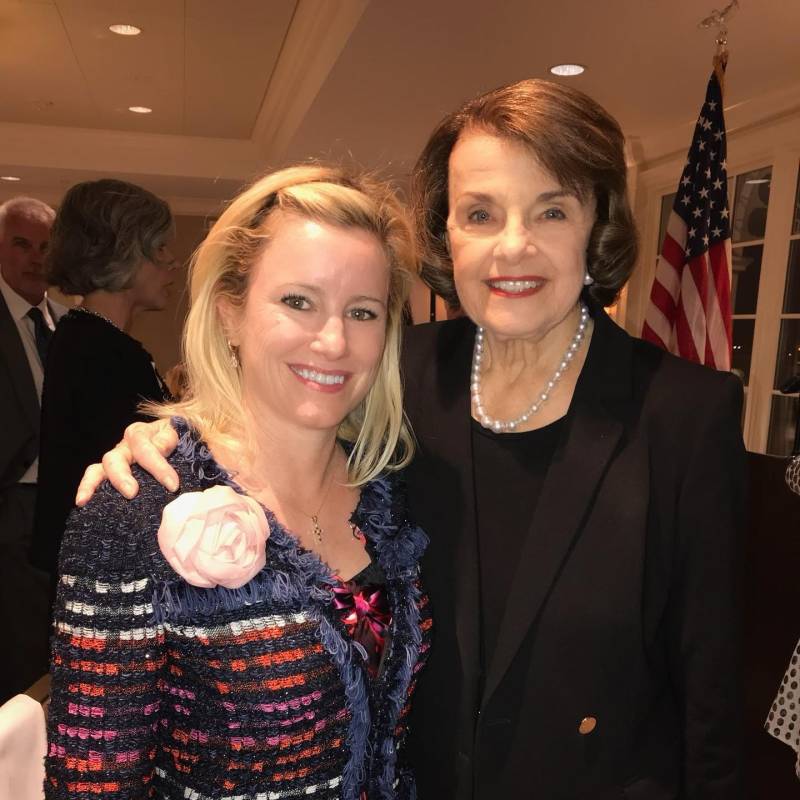
When Ashleigh Aitken was elected as the mayor of Anaheim in November 2022, she became the first woman mayor in the city’s 166-year history and she inherited a mess. In August, Harish “Harry” Singh Sidhu, the former mayor, pleaded guilty to obstructing an FBI corruption investigation into the $150 million sale of Angel Stadium to the owner of the Major League Baseball team.
Aitken, who interned for Feinstein on Capitol Hill in 1996 when she was a college sophomore, was ready for the daunting task of restoring trust in the mayor’s office. She learned from Feinstein.
“I like to not compare what I walked into on day one with the tragedy that she had to embrace in the loss of a personal friend,” Aitken told me. “I think what I really learned from her is that in times of crisis, it’s the most important time to be consistent and true to your values and your ethics.”
Aitken told me that she met Feinstein when she was a young girl, probably 12. She said when Feinstein was running for Senate she became close friends with Aitken’s parents.
“Meeting someone of that stature, when you’re young, really shows you that all doors are open,” Aitken said. “I mean, you can always be taught in school that women can do anything, but when you actually see somebody out there as an example in public service not afraid to tangle in all male arenas, it has an impact.”
Feinstein’s work ethic was revered, but it is how she chose to work that should be a lesson to politicians.
“I hope her death serves as a reminder to all of us that are in public service that there is real, true strength and courage in being collaborative, and I think that’s the one thing that she really stood for that we have in some ways lost,” she said.
Correction: An earlier version of the column incorrectly stated when Dianne Feinstein became first female president of the San Francisco Board of Supervisors. It was in 1970.
